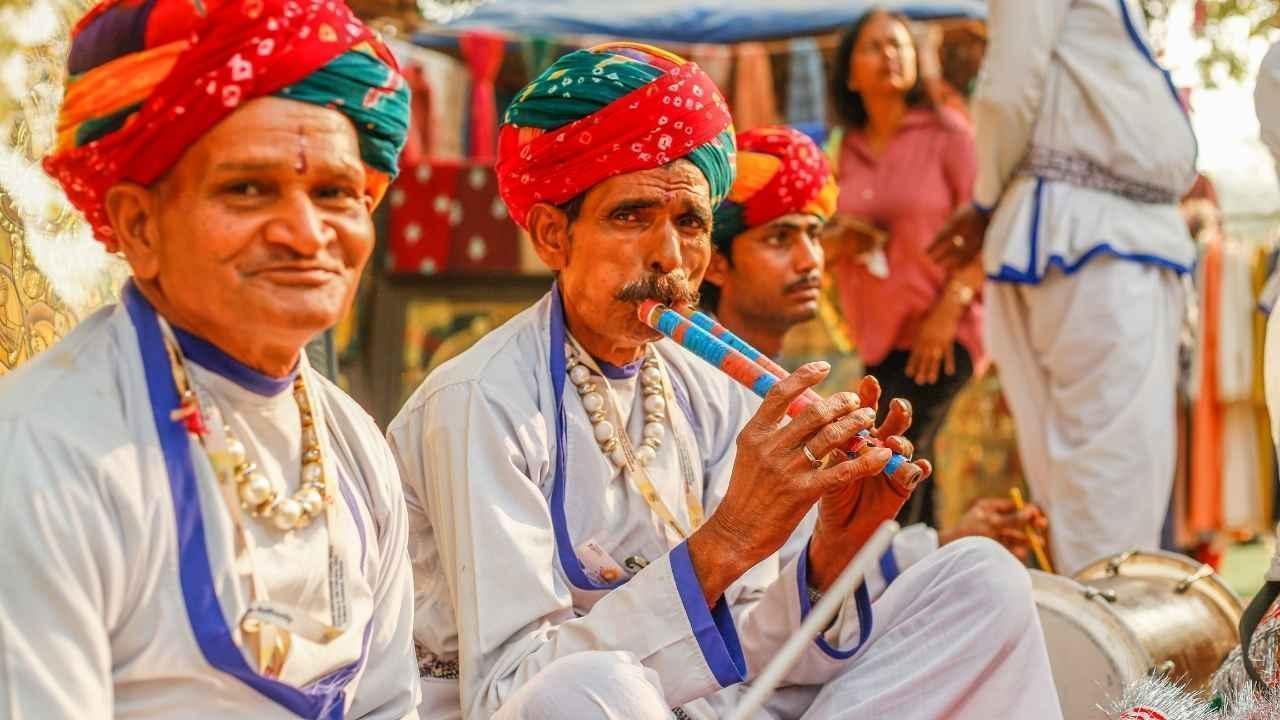
Post by : Mikhael Nasser
Folk music operates as a repository of communal memory and emotion. Beyond melody and accompaniment, it records social experience, local values, and historical memory. From intimate village gatherings to international festivals, these songs sustain cultural continuity, conveying meaning across generations.
Folk music is produced within communities and transmitted primarily through oral tradition. Rather than originating in formal scores or commercial studios, these pieces are encoded in communal practice and intergenerational performance. Their narratives commonly address everyday realities—work, kinship, ritual and seasonal cycles.
In contrast to commercially engineered pop, folk forms tend to be unadorned and direct. They emerge organically among households and neighbourhoods: farmers, artisans and travellers maintain repertoires suited to specific social functions such as fieldwork, processions and domestic celebrations. Each melody or lyric reflects local historical contexts and emotional registers.
The significance of folk music rests in its authenticity. It requires neither elaborate technology nor polished production to convey complex affect—joy, grievance, aspiration or solace. Whether resonating in Rajasthan's arid landscapes, the Irish countryside, or the Sahel, its primary function is social connection.
Folk traditions predate broadcast media and recording. Communities composed and adapted songs as a means to comment on weather, harvests, disputes and triumphs. These repertoires were embedded in daily life, created and reshaped by labourers, caregivers and travellers.
Regional trajectories differ markedly. In South Asia, the Baul of Bengal and the Manganiyar tradition of Rajasthan articulate spiritual and communal themes. In Ireland, modal airs and jigs play through fiddles and flutes. In North America, folk strains evolved into blues, country and bluegrass—genres that narrate migration, labour and resilience.
Over time, folk music has come to symbolise collective identity, preserving cultural memory amid social change.
Traditional timbres give folk music its distinctive character. Handmade instruments fashioned from wood, metal or skin produce sonic textures closely tied to local resources and craft traditions. Each instrument contributes a specific expressive function.
Flute and Bansuri: Wind instruments produce plaintive or pastoral lines familiar across South Asian and European repertoires.
Guitar and Banjo: In North American contexts these stringed instruments provide harmonic support and rhythmic drive.
Sitar and Tabla: Central to many South Asian folk idioms, they impart melodic depth and percussive detail.
Drums and Dhol: Percussion anchors communal dance and ritual in many African and Asian traditions.
Oud and Darbuka: In Middle Eastern practice these instruments articulate lyrical nuance and rhythmic complexity.
Each instrument reflects local craftsmanship, usage contexts and expressive priorities.
Folk repertoire communicates shared values and social commentary. Topics commonly include nature, labour, love, spiritual belief and communal solidarity. These songs can celebrate life events and, equally, provide a vehicle for critique and mobilization.
During political upheavals or social movements, folk songs have often functioned as tools of protest and collective morale. In stable periods they serve ceremonial and recreational roles. Across contexts, their durability lies in the capacity to articulate common experience.
Folk forms display wide geographic diversity in rhythm, instrumentation and narrative focus.
India: From Punjab's Bhangra to Bengal's Baul, the subcontinent's folk landscape is highly varied and functionally embedded in local culture.
Ireland: Irish folk traditions feature modal melodies and dance tunes that evoke rural life and oral storytelling.
Africa: Many African traditions centre on polyrhythmic percussion, call-and-response singing and communal dance.
Middle East: Arabic folk idioms combine poetic lyrics with instruments such as the oud, expressing social and spiritual themes.
America: North American folk developed through migration and labour, generating narrative-driven genres that chronicle social change.
Each regional style conveys particular historical and cultural logics while contributing to a global ensemble of folk practice.
Folk music remains adaptive in the contemporary cultural economy. Musicians increasingly blend traditional elements with pop, rock and jazz, creating hybrid forms that appeal to younger audiences while maintaining lineage. Festivals such as the Rajasthan International Folk Festival and Folk Alliance International provide institutional support and visibility.
Digital platforms have expanded reach, enabling performers to disseminate and archive repertoires beyond local boundaries, yet also raising questions about authenticity and appropriation.
In an era of mediated soundscapes and mass-produced music, folk traditions remain a vital counterpoint: they foreground human scale, lived experience and communal memory. Simple musical gestures—a drum pattern, an unadorned vocal line—can transmit identity and historical knowledge in ways that commercial productions often cannot.
Folk music persists because it fulfils social functions: it consoles, celebrates and mobilises. As long as communities narrate their lives through song, these traditions will continue to matter.
Disclaimer
The information provided here is intended for general educational purposes. It is not a substitute for professional advice in ethnomusicology or cultural policy. Readers seeking specialized guidance should consult academic sources or qualified practitioners.










Yashasvi Jaiswal's Health on the Mend After Hospitalization for Gastroenteritis
Yashasvi Jaiswal is recovering after hospital treatment for gastroenteritis, and might miss initial

Dhurandhar Approaches Rs 500 Crore Milestone at the Box Office
Dhurandhar collects Rs 22.5 crore on Day 15, reaching a net total of Rs 483 crore in India. Worldwid

Bologna Triumphs Over Inter Milan to Secure Super Cup Final Spot
Bologna edged out Inter Milan on penalties after a 1-1 draw, with Ciro Immobile's decisive kick send

Sreenivasan: The Legendary Malayalam Actor and Writer Departed at 69
Sreenivasan, a celebrated actor and writer in Malayalam cinema, passed away at 69, leaving a rich le

Varun Chakravarthy Tops T20I Wicket Charts in 2025
Varun Chakravarthy concludes 2025 as the leading T20I wicket-taker, securing 10 wickets against Sout

Andrew Tate's Reaction to Wiz Khalifa's Drug Sentence in Romania
Andrew Tate criticized Wiz Khalifa’s nine-month jail term in Romania, as the rapper's team prepares